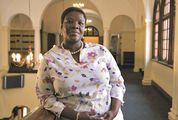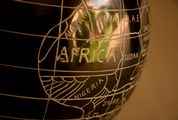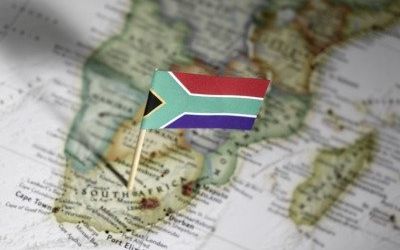SADLY, this is my last column as a journalist. If the saying "Out of nothing, nothing comes" (Ex nihilo nihil fit) is correct, it must follow that the journalist I am today is because of God and all the people I’ve crossed paths with. I want to thank all of you for making me the journalist I have been.
I have decided to park the pen before it runs out of ink. I’ll say, "till we meet again!" Wherever I am going, I will be pursuing knowledge and skills that I hope will one day turn into something that can be put on a commercial bookshelf.
One of the things that has bothered me as a young person, is the way history has been written and taught in SA. Many among us were beaten up by teachers and even failed for not remembering the false dates that, among other things, said gold was discovered in 1886 on the Witwatersrand by people other than Africans.
One of the falsehoods that continues is that black people in SA knew nothing about diamonds, and that this was the domain of people such as Cecil John Rhodes, Barney Barnato and Charles Rudd. A canard continues to be peddled, especially on social networks, that Africans were just about consumption and could never have been about surplus and commerce.
One of the hazardous narratives I have heard repeated ad nauseam, especially in the run-up to the governing African National Congress’s (ANC’s) Polokwane conference in 2007, is that the amaXhosa wanted to hog the South African presidency alone and not give others a chance. This is a very dangerous and inaccurate history.
The ethnic group that a president comes from should not matter. The best brains and people who have the interests at heart of making the lives of all South Africans better should lead this country.
Many have argued menacingly that former South African presidents Nelson Mandela and Thabo Mbeki were amaXhosa and that other ethnic groups needed to be given a shot.
Some within the ANC even put up the name of Oliver Tambo, saying the party needed a great change from the amaXhosa. People who argue such are seriously miseducated.
In fact, I do not recall any amaXhosa president running the country. Not that it mattered anyway.
It’s a fact that Mandela is from the AbaThembu and not amaXhosa. The AbaThembu are a nation in their own right and are the people of Ndaba, Zondwa and Ngubengcuka. Tambo was of the amaMpondo nation, those who fought in Ngquza Hill against Bantu authorities and their taxes. The amaMpondo are the people of Faku of Mqikela. Equally, the Zizi, the people of Mbeki, are linked to the amaHlubi nation, the people of Langalibalele, Bhungane and Xaba, my people.
The real amaXhosa are the people of Tshawe, Khawuta, Sarhili, Maqoma (Ahhh, Jongumsobomvu!) who would have fought at least nine frontier wars against the colonialists.
Many conflate people who speak isiXhosa, which is a lingua franca in the same way that English is in the world today.
But I digress. We are Africans, and that’s what should matter.
Moving back to the fiction about commerce and diamonds, Rhodes and Barnato. In 1869, a Griqua (Griquas are part of the great Khoi San people) farm employee traded a diamond with Dutch farmer Schalk van Niekerk for 500 sheep, 10 oxen and a horse.
Van Niekerk sold the 80 carat stone, which was named the Star of Africa, for £11,000. It was subsequently bought in Britain for £25,000.
By the way, Rhodes arrived in the diamond fields during the 1870s.
In the late 1770s, the Basotho were already known to be craftsmen who mined and smelted iron, copper and tin. Smelting was practiced in Phalaborwa from the eighth century and at Melville koppies from the 11th century. Vhavenda and the Shona specialised in gold mining.
Go and check this with the historian Monica Wilson if you think I am spinning yarns.
Historian Colin Bundy will tell you that in the 1860s, blacks living in Natal produced agricultural surpluses for trade, which enabled them to withhold their labour from white farmers. As we all know, Africans had mined in Mapungubwe and Great Zimbabwe long before the arrival of Europeans.
That’s me for now. Hoping to give you more of this in some collated format soon. So long!
• Ndzamela is finance writer.





















Change: 0.73%
Change: 0.82%
Change: 0.70%
Change: 0.65%
Change: 1.88%
Data supplied by Profile Data
Change: 0.61%
Change: 0.03%
Change: 0.83%
Change: 0.00%
Change: 0.06%
Data supplied by Profile Data
Change: 1.46%
Change: 1.04%
Change: 1.17%
Change: 1.07%
Change: 1.08%
Data supplied by Profile Data
Change: -0.04%
Change: 0.31%
Change: 0.07%
Change: 1.06%
Change: 2.62%
Data supplied by Profile Data